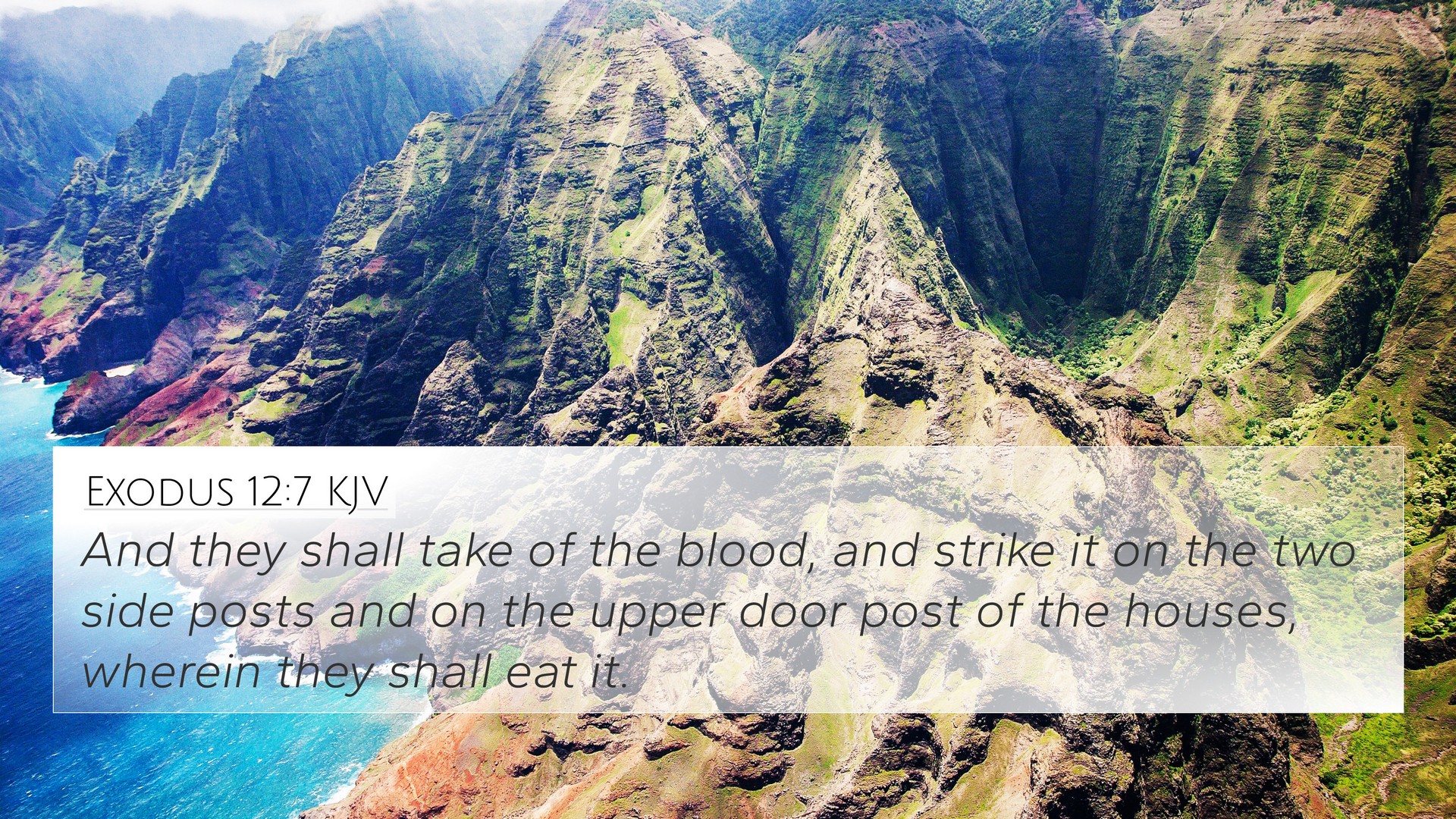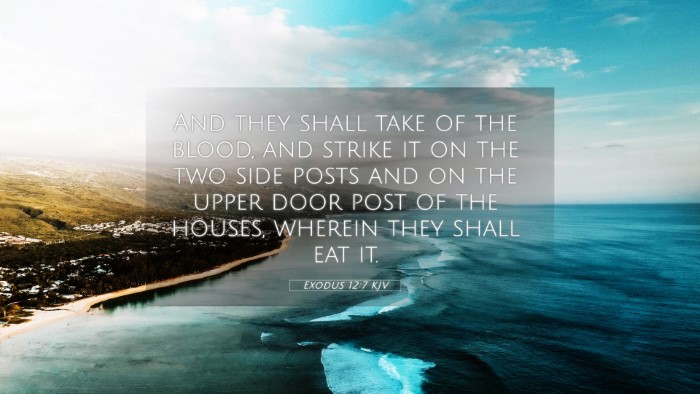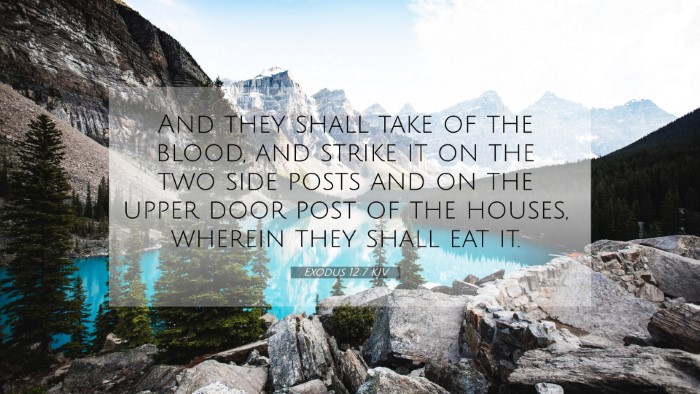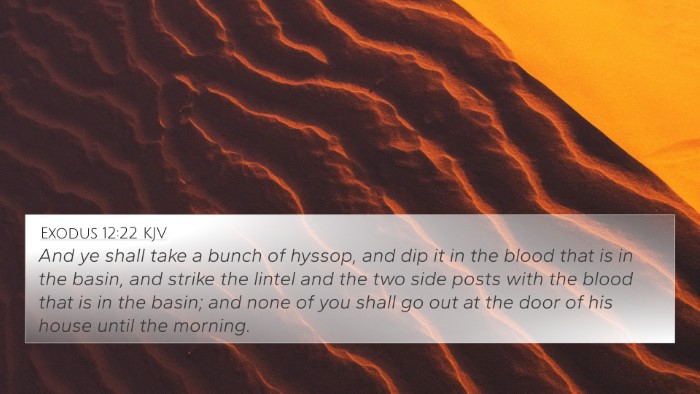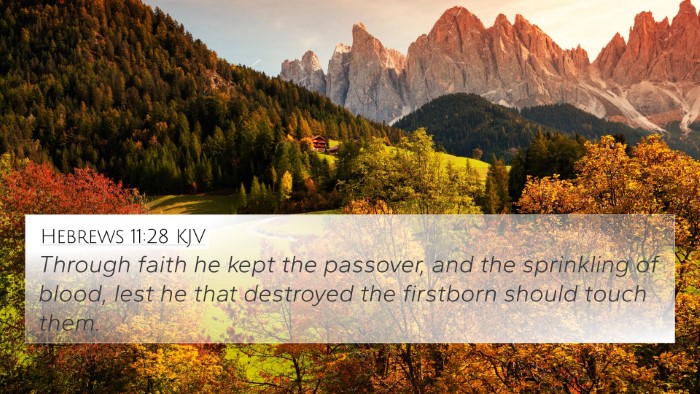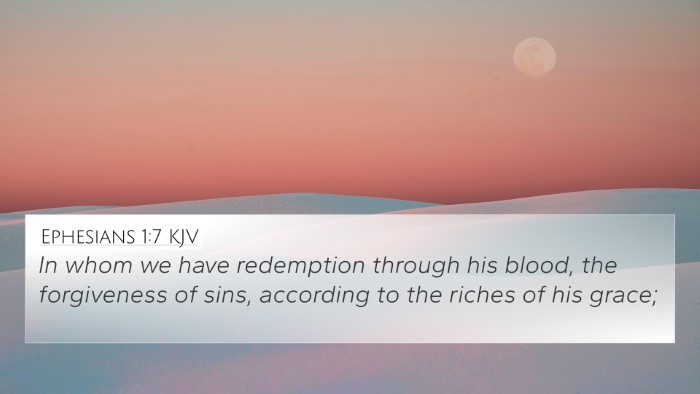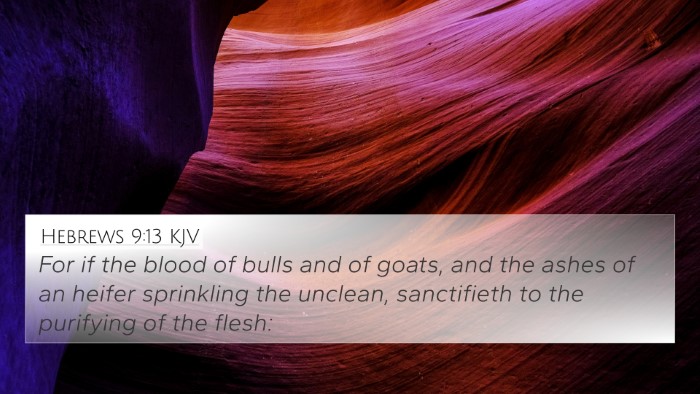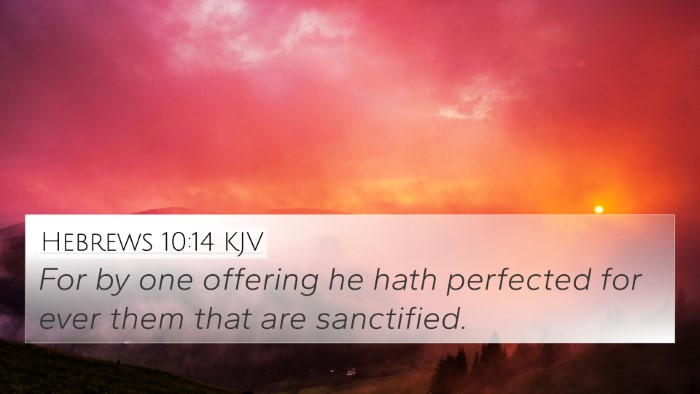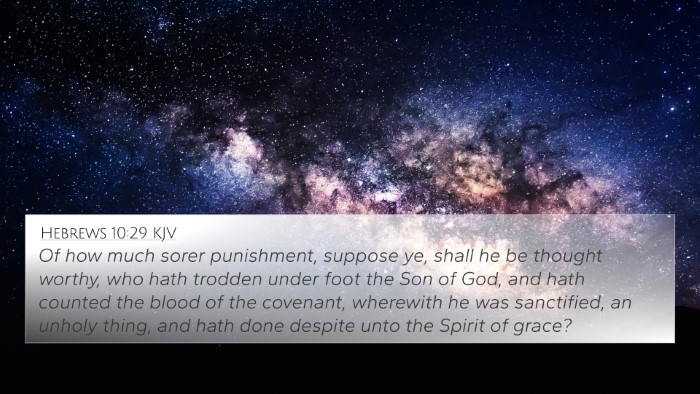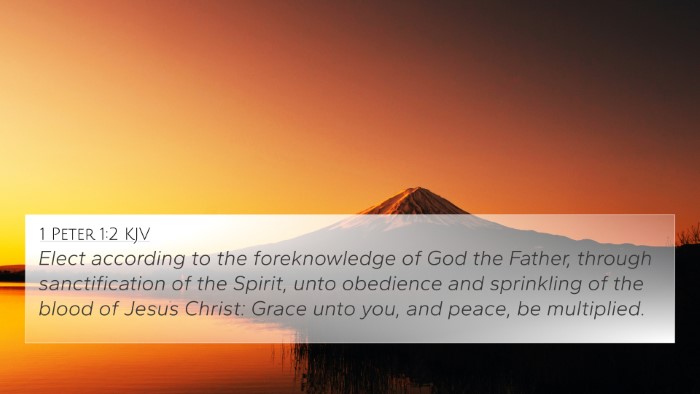Understanding Exodus 12:7
Bible Verse: Exodus 12:7 - "And they shall take some of the blood and put it on the two doorposts and the lintel of the houses in which they eat it."
Summary of Meaning
The verse comes from the narrative of the Passover, a pivotal event for the Israelites as they prepare to leave Egypt. By applying the blood of the lamb to their doorposts, the Israelites were instructed to distinguish their homes from those of the Egyptians, ensuring they would be spared from the final plague: the death of the firstborn.
Commentary Insights
-
Matthew Henry's Commentary:
Henry illustrates the significance of the blood as a token of divine protection. He emphasizes the faith required for the Israelites to obey this command, interpreting the blood as a foreshadowing of Christ’s sacrifice and the redemption it brings to believers today.
-
Albert Barnes' Notes:
Barnes highlights the metaphorical importance of the doorposts as a symbol of salvation and refuge. He draws connections to the concept of safety through faith and the idea of being set apart by God's grace, reinforcing the message that obedience leads to deliverance.
-
Adam Clarke's Commentary:
Clarke provides a detailed analysis of the ritualistic aspects of the Passover. He notes the requirement of taking the blood from the lamb and the careful instructions given by God, illustrating the sacred nature of this act and its implications for the covenant between God and His people.
Connections Between Bible Verses
This verse serves as an important cross-reference to several other Scriptures that highlight themes of protection, sacrifice, and redemption.
- Hebrews 9:22: "Without the shedding of blood there is no forgiveness of sins." - This verse emphasizes the significance of blood in the sacrificial system, analogous to the blood of the lamb in Exodus.
- 1 Peter 1:19: "But with the precious blood of Christ, like that of a lamb without blemish or spot." - This connects the sacrificial lamb of Passover to Christ’s ultimate sacrifice.
- John 1:29: "Behold, the Lamb of God, who takes away the sin of the world!" - A direct link that identifies Christ as the fulfillment of the Passover lamb.
- Romans 5:9: "Since therefore we have now been justified by his blood, much more shall we be saved by him from the wrath of God." - This verse reinforces the theme of salvation through the blood of Christ.
- Exodus 12:13: "The blood shall be a sign for you on the houses where you are." - This follow-up verse solidifies the protective element of the blood in the Passover story.
- Luke 22:20: "This cup that is poured out for you is the new covenant in my blood." - This establishes the continuity of the covenant through Christ's sacrifice, linking back to the Passover.
- Revelation 12:11: "And they have conquered him by the blood of the Lamb." - A powerful reference that speaks to the victory believers have through the blood of Christ, echoing the protection promised during Passover.
Thematic Bible Verse Connections
The themes of Exodus 12:7—sacrifice, protection, and redemption—are echoed throughout Scripture. Below, we explore some of the thematic connections with other verses:
- Sacrifice Theme:
- Genesis 22:8: Abraham's willingness to sacrifice Isaac parallels the sacrifice of the Passover lamb.
- Leviticus 17:11: "For the life of the flesh is in the blood, and I have given it for you on the altar to make atonement for your souls." - This deepens the understanding of sacrificial blood being central for atonement.
- Protection Theme:
- Psalms 91:7: "A thousand may fall at your side, ten thousand at your right hand, but it will not come near you." - This verse resonates with the theme of divine protection from judgment.
- Isaiah 54:17: "No weapon that is fashioned against you shall succeed." - A reference to God’s promise of safety and protection to His people.
- Redemption Theme:
- Galatians 3:13: "Christ redeemed us from the curse of the law by becoming a curse for us." - This shows how Christ’s redemption parallels the deliverance from Egypt.
- Titus 2:14: "Who gave himself for us to redeem us from all lawlessness and to purify for himself a people for his own possession." - A direct link to Christ as the ultimate redeemer.
Inter-Biblical Dialogue
The dialogue between the Old and New Testaments provides a rich tapestry of meaning to the core message found in Exodus 12:7. It invites readers to explore how the sacrificial acts in the Old Testament foreshadow New Testament truths about Christ.
For instance, the refining process that both the Passover and Christ’s sacrifice undergo shed light on the continuous narrative of salvation throughout Scripture. The incorporation of these themes not only informs individual scripture study but also enhances overall Biblical literacy.
Tools for Bible Cross-Referencing
To delve deeper into the connections made between Bible verses, one can make use of various tools that enhance understanding and facilitate further study:
- Bible Concordance: A reference tool that helps identify where specific words and themes occur throughout the scriptures.
- Bible Cross-Reference Guide: Guides that connect related scripture passages, making it easier to explore themes and doctrines.
- Cross-Reference Bible Study: Methods that utilize cross-references to deepen understanding of specific topics.
- Bible Reference Resources: Various resources including apps and books that provide extensive cross-referencing capabilities.
Concluding Thoughts
Exodus 12:7 is not just an isolated command but serves as a significant link within the broader narrative of Scripture, encapsulating themes essential for understanding God's plan for redemption. By studying this verse through the lens of cross-referencing and thematic connections, we gain a deeper appreciation for how the Old Testament lays the groundwork for the New Testament revelation of Jesus Christ, the Lamb of God.
